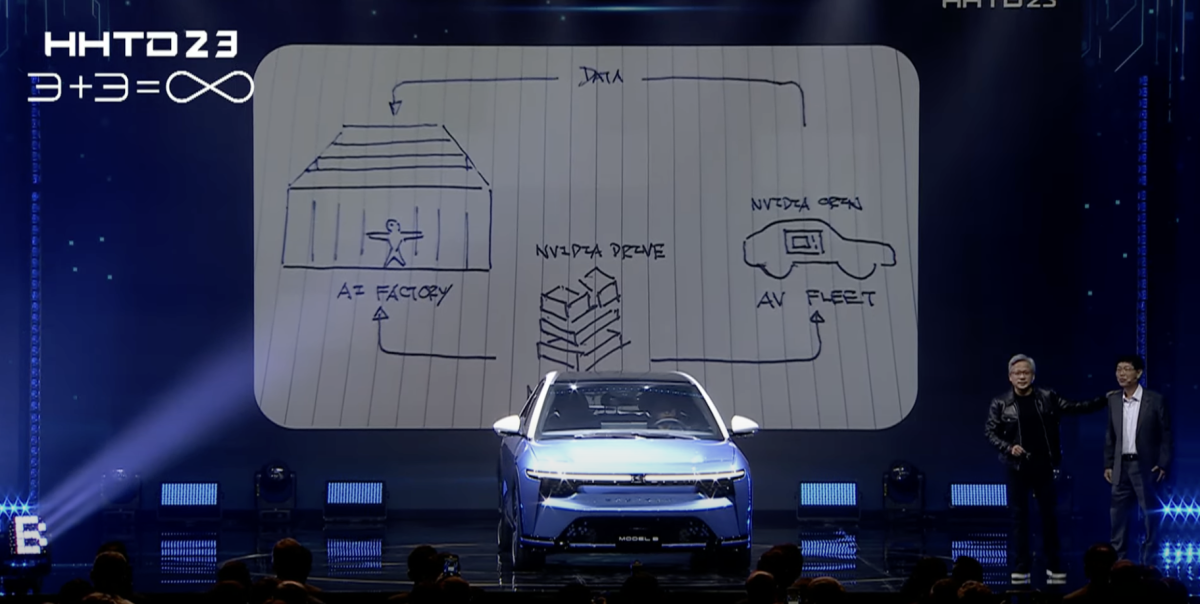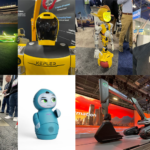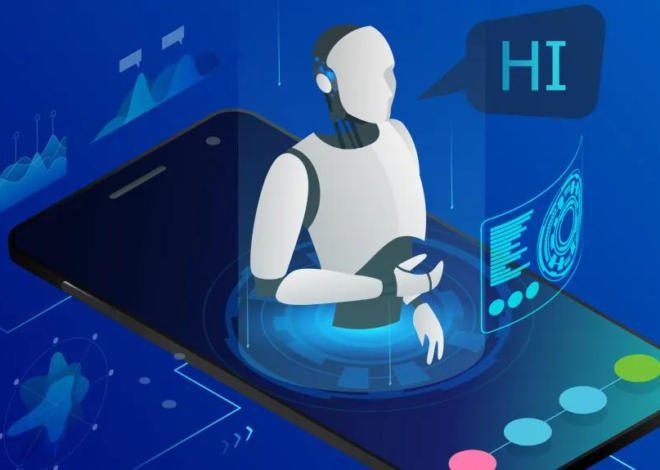
Foxconn and Nvidia are building ‘AI factories’ to accelerate self-driving cars
Nvidia and Foxconn’s collaboration on “AI factories” is poised to revolutionize various industries, starting with smart electric vehicles, smart cities, and smart manufacturing. These facilities will transform data into valuable insights, shaping a future where AI factories are ubiquitous.
Nvidia and Foxconn are teaming up to create “AI factories.” These special data centers will be like supercomputers that help make self-driving cars, machines that work on their own, and robots for factories to get smarter and work better.
Nvidia‘s CEO, Jensen Huang, and Foxconn’s CEO, Young Liu, recently revealed their partnership at an event in Taiwan. They’re teaming up to create something called an “AI factory.” This factory will be based on Nvidia’s powerful computer technology and will handle vast amounts of data, turning it into valuable AI knowledge.
To put it simply, they’re building a system where smart electric cars, equipped with AI, can interact with drivers and passengers and even drive themselves. These cars will learn from their experiences and gather data. This data will be sent to the AI factory, which will improve the car’s software and update the entire group of AI-equipped cars.
This partnership is an extension of an earlier deal between Nvidia and Foxconn to develop technology for self-driving vehicles. Foxconn is going to supply electronic control units for car manufacturers, using Nvidia’s advanced technology. Additionally, Foxconn plans to make vehicles using Nvidia’s technology, including sensors like cameras and radar, which are essential for self-driving cars. This is all part of their effort to advance the development of autonomous vehicles.
Foxconn has already signed a contract to manufacture electric vehicles (EVs) for Fisker, despite facing legal issues with its former partner, Lordstown Motors. To make their AI factories successful, especially in competing with Tesla, they need to operate on a larger scale.
These AI factories are essentially competitors to Tesla’s Dojo supercomputer, which Tesla began producing this summer. Dojo is designed to train Tesla’s neural networks, which are essential for powering and improving their “full self-driving” (FSD) system. Elon Musk envisions FSD as true self-driving technology, and Dojo’s immense computing power is crucial for achieving that goal.
Currently, Tesla uses a powerful Nvidia GPU-based supercomputer, but the upcoming Dojo will use custom-designed chips created by Tesla. Foxconn and Nvidia’s AI factories, on the other hand, will rely on Nvidia’s GH200 Grace Hopper Superchip and AI Enterprise software.
Read Also | Tesla decreases the price of FSD beta to $12,000
These AI factories have applications beyond self-driving cars. Foxconn aims to transform itself from a manufacturing service company into a platform solutions company. Their goal is to expand the AI factory concept to various industries, starting with three main platforms: Smart EVs, smart cities, and smart manufacturing. In essence, they want to use this technology to enhance and innovate across a wide range of sectors.
“In simple terms, this factory takes data and turns it into valuable knowledge,” explained Huang, with Liu in agreement. He added, “In the future, we envision that every industry and every company will have their own AI factory.”
Also Read | How robotaxis are dividing San Francisco












